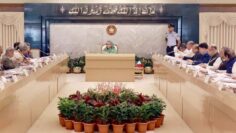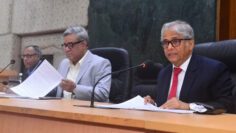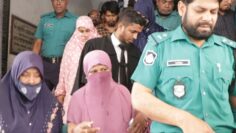‘WB committed to Bangladesh’s resilient and inclusive recovery from Covid’
PBC News: The World Bank is committed to helping Bangladesh remain on a sustainable growth path, amid the government’s economic reforms to emerge stronger from the Covid-19 pandemic.
The assurance came from none other than the global leader’s Vice President for South Asia, Hartwig Schafer, as he wrapped up his week-long visit to Bangladesh, reports UNB.
He also noted the strong role the Prime Minister played at the recent COP26 meeting, the World Bank said in a statement.
“The resilience of Bangladesh’s people and the economy is striking. The Covid-19 pandemic hit the country hard, but the government’s proactive measures have largely contained the virus and the economy has started to turn around,” Schafer said.
He said that the World Bank is committed to helping Bangladesh remain on a sustainable growth path, which will require timely policy actions to build strong public institutions, a robust private sector and conducive business climate, and a skilled labour force, and at the same time focus on climate resilience.
During the visit, Schafer also met with Advisor to the Prime Minister Salman F Rahman, Governor of Bangladesh Bank Fazle Kabir, Chairman of the National Board of Revenue (NBR) Abu Hena Md Rahmatul Muneem, as well as senior government officials, representatives from the private sector, and development partners.
The World Bank Group is beginning the preparation of its new Country Partnership Framework (CPF) for Bangladesh, which will guide its support to the country from 2023-2027.This entails a robust consultation process with a broad range of stakeholders in government, the private sector, and civil society, and with development partners, the statement said.
In his meetings with government and other stakeholders, Schafer discussed their perspectives on Bangladesh’s development priorities and how the World Bank can support these in a sustainable way.
“Bangladesh is an inspiring development success story,” said Schafer.
“As the country works to become an upper-middle-income country by 2031, the World Bank will be there every step of the way on a path to economic growth that is greener, more resilient, and more inclusive for the people of Bangladesh.”
Schafer also visited two World Bank-financed project sites.
In Bhairab, he met with micro-entrepreneurs who are using clean technologies in their shoe-making businesses.
They are among the 40,000 micro-enterprises who are gaining access to microfinance to grow their small businesses and boost their incomes, while adopting greener and cleaner production practices.



















